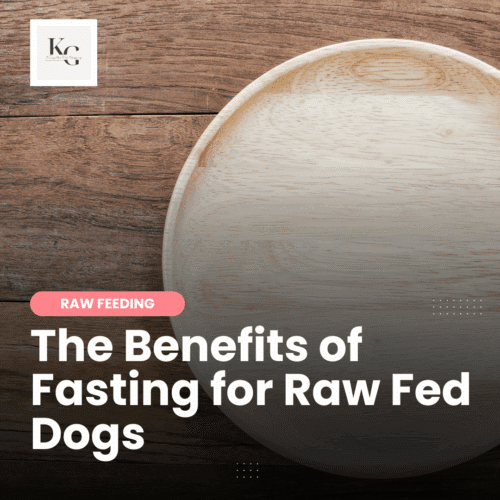Keep the Tail Wagging is supported by pet parents. I occasionally earn a commission (at no additional cost to you) when you click through an affiliate link to one of my favorite products. Thank you for your support. Read More
Can dogs eat Brazil nuts? On page 32 of The Forever Dog Live, Brazil nuts are included in the list of anti-inflammatory foods. “Chop up one a day for you and your big dog, or share one with smaller dogs.” I've never considered snacking on Brazil nuts (they taste like dirt) or sharing them with my dogs (they'd probably enjoy dirt flavor). Still, in my quest to raise a Forever Dog, I'm willing to try anything if it'll help me raise healthier, long-living dogs naturally.
What are Brazil Nuts?
Brazil nuts are large edible seeds that come from the Brazil nut tree, scientifically known as Bertholletia excelsa. These nuts are native to the Amazon rainforest in South America, particularly in Brazil, Bolivia, and Peru. Brazil nuts are enclosed in hard, dark brown shells that resemble coconuts. The nuts grown in the wild aren't usually treated with pesticides, but they may be treated after harvest to prevent spoilage. Organic Brazil nuts are grown without pesticides
This article will explore whether Brazil nuts are a safe and healthy addition to a dog's diet. We'll examine their nutritional content, potential benefits, and any potential risks they may pose to our dogs, as well as how to add this popular nut to your dog's diet.
When considering whether dogs can eat Brazil nuts, it's essential to analyze the risks and benefits of this particular nut. Brazil nuts are known for their rich, creamy texture and distinct flavor, making them a popular choice among humans for snacking and cooking. However, not all human foods are suitable for canine consumption, and Brazil nuts are no exception. Understanding the unique characteristics of Brazil nuts can help dog owners navigate this complex topic.
Can Dogs Eat Brazil Nuts?
Brazil nuts contain essential nutrients, including healthy fats, protein, vitamins, and minerals. They are incredibly high in selenium, a necessary mineral for dogs that serves several important functions in their bodies. Here are some key functions of selenium for dogs:
- Antioxidant Protection: Selenium acts as an antioxidant, helping to protect cells from damage caused by free radicals.
- Immune Function: Selenium is crucial in supporting the immune system, aiding the body's defense against infections and diseases.
- Thyroid Function: Selenium is necessary for proper thyroid function and is essential for regulating metabolism and overall health.
- Muscle Function: Selenium helps maintain healthy muscle function and can contribute to muscle strength and endurance in dogs.
- Growth and Development: Selenium is essential for the growth and development of puppies, supporting proper bone formation and overall growth.
Small quantities of selenium are necessary for canine health, but excessive amounts can lead to toxicity, making moderation a key consideration. According to the NRC (National Research Council), dogs require approximately 87.5 micrograms (mcg) of selenium daily.
In addition to selenium, Brazil nuts are high in calories and fat. The healthy fats boost energy and skin and coat health. There is a concern that feeding nuts to dogs can lead to obesity, but the amounts recommended in this article (and other sources) aren't enough to cause concern. I'd be more concerned about whether Brazil nuts are too rich for my dogs.
Benefits of Brazil Nuts for Dogs
While the primary concern for many dog owners is whether Brazil nuts are safe, it's also worth exploring the potential health benefits these nuts may offer.
- Selenium: Selenium is an essential nutrient that supports the immune system, reduces inflammation, and contributes to heart health. A small amount of selenium added to a balanced diet can help promote overall well-being.
- Healthy Fats: Brazil nuts are rich in healthy fats that provide a source of energy, help maintain a dog's coat health, and promote skin vitality.
- Antioxidants: Antioxidants are crucial in protecting cells from damage caused by free radicals, thus potentially reducing the risk of chronic diseases. Brazil nuts provide another source of antioxidants, offering an extra boost to the diet to help combat oxidative stress in dogs.
Potential Risks of Brazil Nuts for Dogs
Despite the potential benefits, there are several risks and precautions dog owners must take into account before introducing Brazil nuts into their pets' diets.
- Selenium: While selenium is necessary for canine health, excessive amounts can lead to selenium toxicity. Symptoms of this condition can include gastrointestinal distress, hair loss, and even neurological issues in severe cases. Therefore, it's crucial to monitor the quantity (and quality) of Brazil nuts given to dogs and consult with a canine nutritionist for guidance if you have concerns.
- High Fat: Brazil nuts are high in fat. While dogs require fats for energy, too much can lead to weight gain and obesity. Obesity poses a range of health risks for dogs, including joint problems, diabetes, and cardiovascular issues. Introducing too many Brazil nuts could exacerbate the issue if a dog is overweight.
- Choking Hazard: Brazil nuts can pose a choking hazard, especially for smaller dogs. Their large size and hard texture may make them difficult for some dogs to chew, leading to the risk of choking or gastrointestinal blockages. To prevent such risks, it's advisable to chop or break Brazil nuts into smaller pieces and supervise dogs while eating them. It might be easier to break up the nuts and use them as a meal topper.
Feeding Brazil Nuts to Dogs
I became curious about adding Brazil nuts to my dogs' diet when I read about the anti-inflammatory benefits because of the selenium. If I were to add Brazil nuts to my dogs' diet, I would chop them up and sprinkle the nuts over my dogs' meals as a meal topper. But, to avoid adding too much selenium to their diet, I would do this in moderation.
The principle of moderation is paramount when it comes to incorporating Brazil nuts into a dog's diet. While these nuts can offer certain nutritional benefits, excessive consumption can lead to health problems. The general guideline for introducing any new food or supplement is to start with a small amount, typically no more than one-tenth of a nut for small dogs and one-half of a nut for larger breeds. This cautious approach allows owners to observe how their dogs react to the new addition without overwhelming their systems.
As you introduce these nuts to your dog's diet, look for signs of gastrointestinal distress, such as vomiting or diarrhea, which could indicate that the nuts do not agree with the dog. If any adverse effects occur, it's best to discontinue offering the nuts and consult a veterinarian for advice. By adhering to these guidelines and exercising moderation, dog owners can safely include Brazil nuts as an occasional treat or whole food supplement in their pets' diet.
Alternatives to Brazil Nuts for Dogs
Brazil nuts may not be a suitable option for dogs with nut allergies or sensitivities. Allergies can manifest in various ways, including skin irritations, gastrointestinal upset, or even more severe reactions. Therefore, dog owners must explore alternatives that are both safe and nutritious. Fortunately, several dog-friendly options can provide similar benefits without the risks associated with nuts.
- Pumpkin Seeds: These seeds contain healthy fats, protein, and essential nutrients like magnesium and zinc. Pumpkin seeds can support a dog's immune system, promote healthy skin, and even aid in digestion. They can be given whole or ground into a powder and sprinkled over regular dog food as an occasional treat. Feeding too many pumpkin seeds can lead to digestive distress, so start small and slowly increase to the recommended 1 pumpkin seed per every 10 pounds of body weight.
- Sunflower Seeds: These seeds are also nutritious and provide a good source of vitamins and minerals, including vitamin E, which is beneficial for skin and coat health. Like pumpkin seeds, sunflower seeds should be given in moderation, and dog owners should ensure they are unsalted and free from any seasonings.
Final Thoughts
While Brazil nuts offer certain nutritional benefits, including selenium, healthy fats, and antioxidants, they also pose potential risks that cannot be overlooked. The high selenium content, calorie density (approx. 33 calories per nut), and choking hazards associated with these nuts necessitate a cautious approach to feeding them to dogs.
Moderation is key for dog owners who wish to include Brazil nuts in their pets' diets. By starting with small amounts and carefully monitoring for adverse reactions, owners can safely introduce these nuts as an occasional treat or whole food supplement (meal topper). Additionally, consulting with a canine nutritionist can help ensure dogs receive proper nutrition while enjoying safe, unprocessed foods.
Ultimately, informed decision-making is essential when it comes to feeding dogs. Understanding the unique dietary needs of each pet, being aware of potential allergies, and recognizing the importance of balanced nutrition will lead to healthier and happier dogs. By prioritizing these factors, dog owners can confidently navigate the world of canine nutrition while boosting their dog's diet and improving their health with foods like Brazil nuts.
That being said, after researching the benefits and risks of these nuts for my dogs, I've decided that I won't add them to my dogs' diet at this time. Their current diet meets their nutritional needs, and adding various supplements helps reduce inflammation while promoting overall wellness. We're fortunate to have many dog food and supplementation options, and Brazil nuts may be an excellent option for some dogs.





